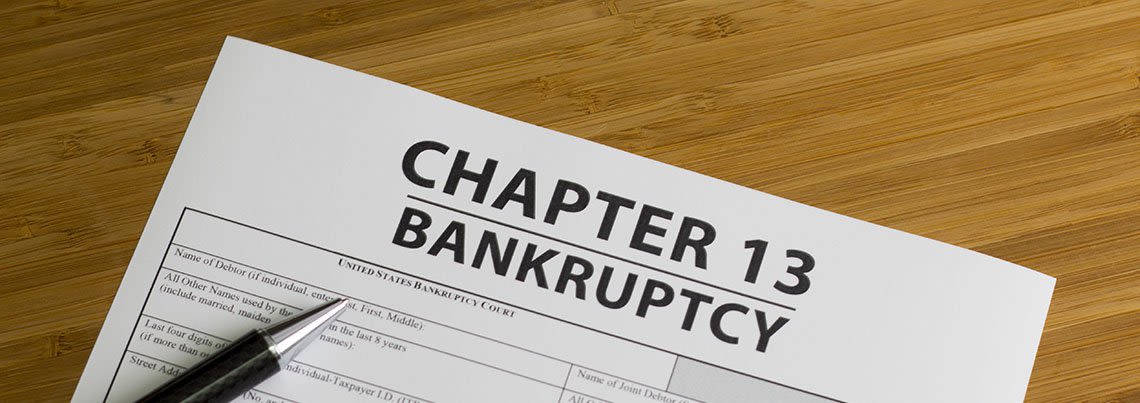
UNDERSTANDING THE DIFFERENCE BETWEEN CHAPTER 7 & CHAPTER 13
According to statistics gathered by the American Bankruptcy Institute, 8,562 Colorado residents took advantage of the bankruptcy code in 2020 to resolve their financial challenges and get a fresh start. Through the first two-plus months of 2021, 1,402 filings have already been reported by the courts.
While bankruptcy can have a scary connotation, it really can mean a new beginning, and in many cases, you can retain your home, your car, and other possessions to continue living pretty much as you did before filing.
If you’re falling behind on payments in Westminster, Colorado, or the surrounding areas including Denver, Aurora, Boulder, and Northglenn, contact our knowledgeable team of bankruptcy attorneys at Garcia & Gonzales, P.C.
We will listen to the details of your situation and explain your options to you. If you decide to proceed, we will handle every aspect of your bankruptcy filing, so you can indeed enjoy that fresh start you need.
Differences Between Chapter 7 & Chapter 13
Individuals and families usually have two options when it comes to bankruptcy. Choosing which one to use depends largely on the amount and type of your debt and the level of your income. Chapter 13 and Chapter 7 of the bankruptcy code are both designed to resolve your unsecured debt load while enabling you to retain secured possessions like your home and car if you qualify.
Chapter 13 Bankruptcy
Chapter 13 is a debt reorganization plan. Also called the “wage earner” plan, Chapter 13 allows filers to consolidate and reorganize their debt so that the debtor’s income will be sufficient to pay everything off within three to five years.
In short, Chapter 13 is for individuals and families who have income, but that income is not sufficient to meet all of their obligations. This type of filing allows you to keep all your possessions so long as you continue to pay for them. If you are behind on your car or mortgage payments, you can make arrangements with the lenders to make up the deficit through the reorganization plan while continuing to make your monthly payments.
Chapter 7 Bankruptcy
Chapter 7 is a liquidation plan, and while it sounds like you have to lose everything in the process, federal and state laws allow for exemptions so that you can retain many, if not all, of your main possessions. Under Chapter 7, the bankruptcy trustee assigned to your case will survey all of your assets and sell off any that are not exempt to pay your creditors, at least partially.
Exemptions for a home or other property start at $75,000 in equity, which rises to $105,000 if a homeowner, spouse, or dependent is disabled or 60 years of age or older. If you own a home worth $250,000 and you still owe $200,000, your home will be exempt since your equity does not surpass $75,000. Similarly, for an automobile, the exemption is $7,500, which rises to $12,500 for the disabled or elderly.
Personal property is exempted up to limits: $3,000 in household goods, $2,000 in clothing, $2,500 in jewelry, $2,000 in books and family pictures, $30,000 for tools of the trade for a primary occupation, $50,000 for livestock and tools. Your retirement savings are also protected, along with most pension and retirement benefits.
While Chapter 7 bankruptcy can discharge most debts, it does not cover taxes and government fines, spousal and child support, and most student loans. These and some other obligations cannot be forgiven.
Qualifying for Bankruptcy
Chapter 7 includes a “means test.” Your income must be below the median income for a household of your size in your state to qualify. Otherwise, you will have to file under Chapter 13. Both Chapter 7 and Chapter 13 require the completion and certification of a credit counseling course before filing.
The Automatic Stay Under Bankruptcy
Both Chapter 7 and Chapter 13 also grant the filer an automatic stay as soon as the paperwork is successfully submitted and filing fees paid. The automatic stay stops all creditors from contacting you to collect their debts. If they continue to try to contact you, refer them to your attorney. They may be sanctioned by the court if they don’t back off.
The stay also stops foreclosure proceedings, but the mortgage lender can petition to get this part of the stay lifted. What the stay does do is give you time to rearrange your loan obligation to retain your residence.
Experienced Colorado Bankruptcy Attorneys
Which option — Chapter 7 or Chapter 13 — is best for you depends on your income level and your debt load. Chapter 13 reorganization is your only option if your income is above the median income for your size of household, but you won’t be discharged from bankruptcy until you’ve paid off your reorganized debt obligation in three to five years. In the meantime, you cannot assume new debt without the approval of the bankruptcy court. Chapter 7 will lead to a discharge within months of filing, after which you can start assuming debt once again, but credit will be tough to come by.
If your debts are out of control and your phone is ringing off the hook, it’s time to consider a fresh start under the bankruptcy code. Our attorneys have a combined 50-plus years of experience in helping individuals resolve their debt issues. If you’re in or near the areas of Westminster or Denver, Colorado, contact us at Garcia & Gonzales, P.C. to discuss your options and let us put you on track for a resolution to your financial difficulties.